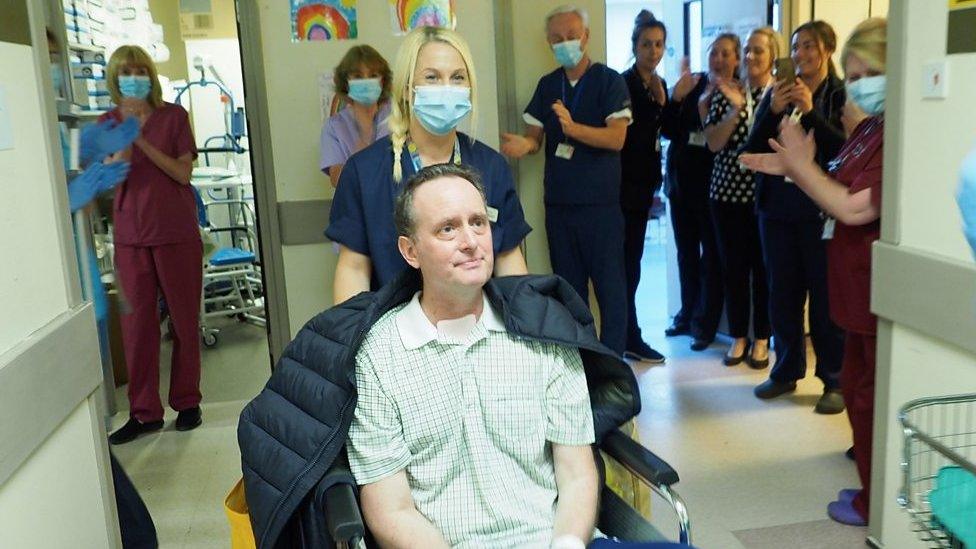Coronavirus: Cardiff man meets doctor who saved his life
- Published
Davide Compagnone returned from the brink of death after a struggle with coronavirus
Covid-19 survivor Davide Compagnone was brought back from the brink of death after a struggle with the disease.
Now the pharmacist has met Dr Matt Morgan, the University Hospital of Wales consultant who saved his life.
The 37-year-old from Cardiff received ECMO treatment - which adds oxygen directly to blood - because he wasn't getting enough by ventilation.
Wales doesn't have its own centre for this so patients are sent to one of five across England.
"I feel so much gratefulness and appreciation towards life," father-of-one Davide said.
"He saved my life, he took the right decision at the right time along with the amazing team at UHW, Llandough and London.
"I feel so emotional and speechless."
The amount of oxygen in his blood was lower than at the peak of Everest without oxygen and he needed a really specialised treatment
Davide was fit and well before contracting coronavirus and had no underlying medical conditions.
During treatment, Dr Morgan saw his condition wasn't improving on a ventilator so referred him to London for ECMO.
"He was probably one of the illest people I've ever met," Dr Morgan said.
"The amount of oxygen in his blood was lower than at the peak of Everest without oxygen, and he needed a really specialised treatment, because adding oxygen into his lungs through a breathing tube wasn't enough.
"He wouldn't have survived."
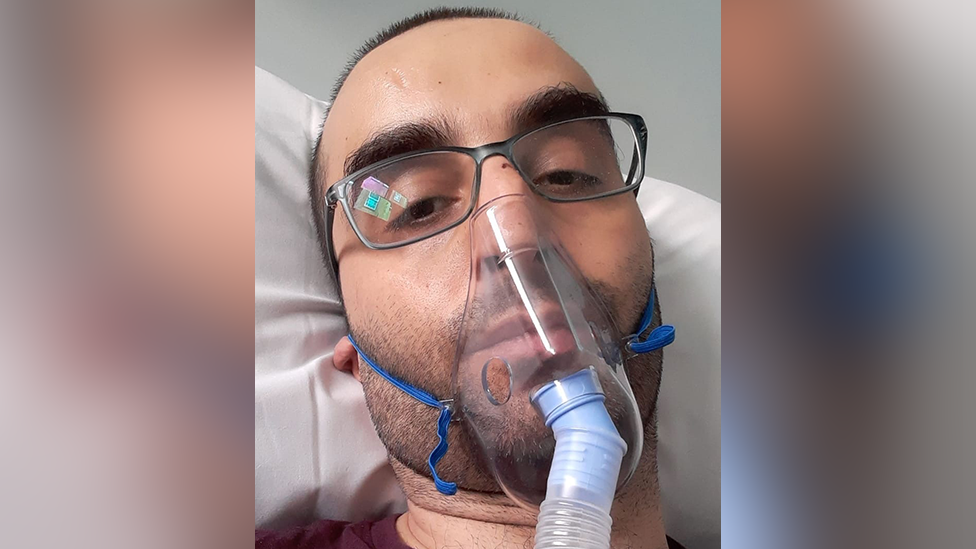
Davide Compagnone came back from the brink of death after a struggle with Covid-19
For the first time, the intensive care specialist was moved to keep his notes on Davide in the form of a letter.
He wrote: "Hi Davide, I've had a long chat to your wife today and I could hear your daughter in the background.
"I explained that you were very unwell, needing as much as 80% oxygen when on your back, and we were really worried that you were sick enough to die."
ECMO treatment is risky and has strict eligibility criteria.
But for those that have it there's a 70% survival rate.
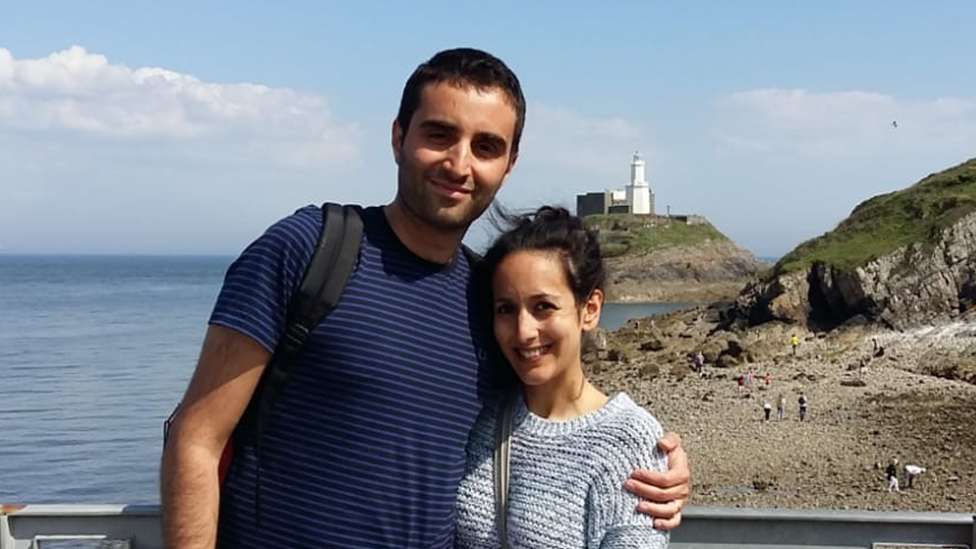
Davide said he now has a greater appreciation of life
A specialist team from London travelled to Wales to hook Davide up to the machine.
Then they took him to the UK capital by ambulance.
Davide's wife, Valentina Flamini, stayed in Cardiff to look after their nine-month-old daughter whilst he was treated in London.
It was an anxious time.
She said: "I saw that people who went through mechanical ventilation had a very slow recovery so I was expecting months and months of tough times for him, and for us as well, but after a week or 10 days, he was more or less fine.
"This is why I think the ECMO played a role."
Davide is now recovering well.
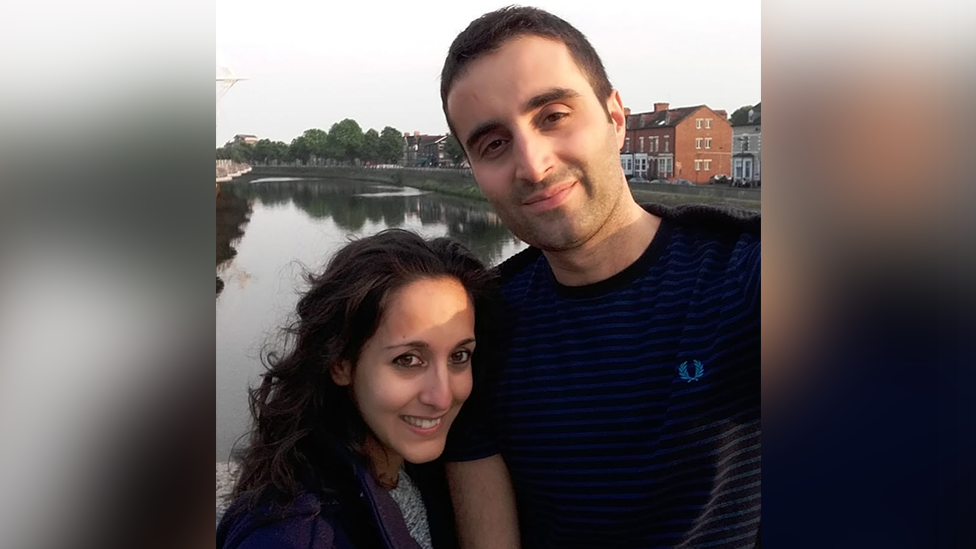
Valentina said she will remember Dr Matt Morgan's voice forever
"I feel a little bit anxious about the future," he said.
"I know that I will now be some sort of vulnerable patient for the future."
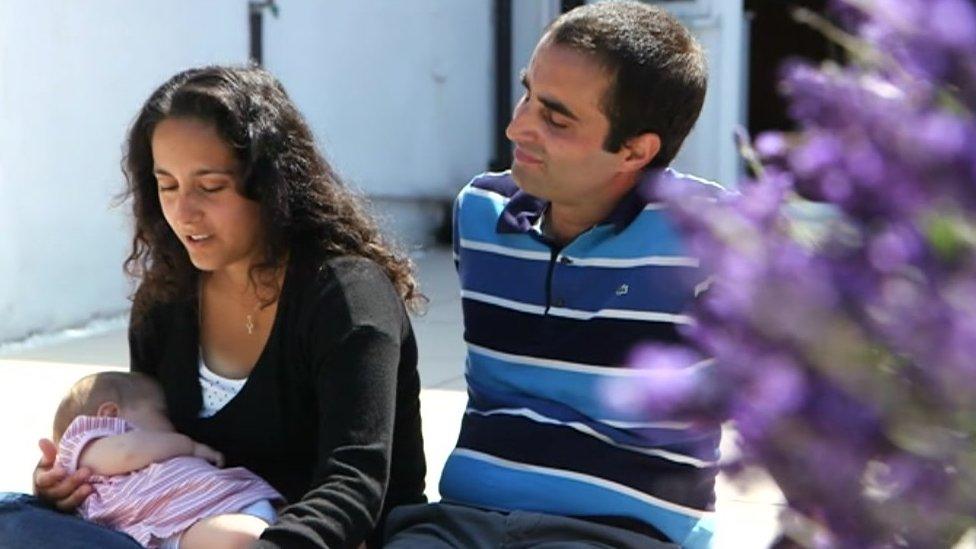
Valentina and Davide said their story has a happy ending
Valentina and Davide credit Dr Matt Morgan with making the life-saving decision to refer him for ECMO treatment.
After meeting him, Valentina was delighted to be able to put a face to his name after many hours on the phone to him.
"I'm really, really grateful," she said.
"I will remember his voice forever. It was a real pleasure to see him in person.
"To see that he is OK (after dealing with so many Covid-19 cases) and we are all right, that's a happy end to the story."
Dr Morgan said a patient a week had been referred from south Wales' hospitals since the first Covid-19 case emerged in February.
The Welsh Government is considering the viability of setting up an ECMO treatment centre in Wales.
A Welsh Government spokesman said: "A decision about whether or not such a facility should be developed in Wales is not about cost but about the number of patients needed to sustain a clinically safe model and maintain clinical competence."
- Published16 June 2020
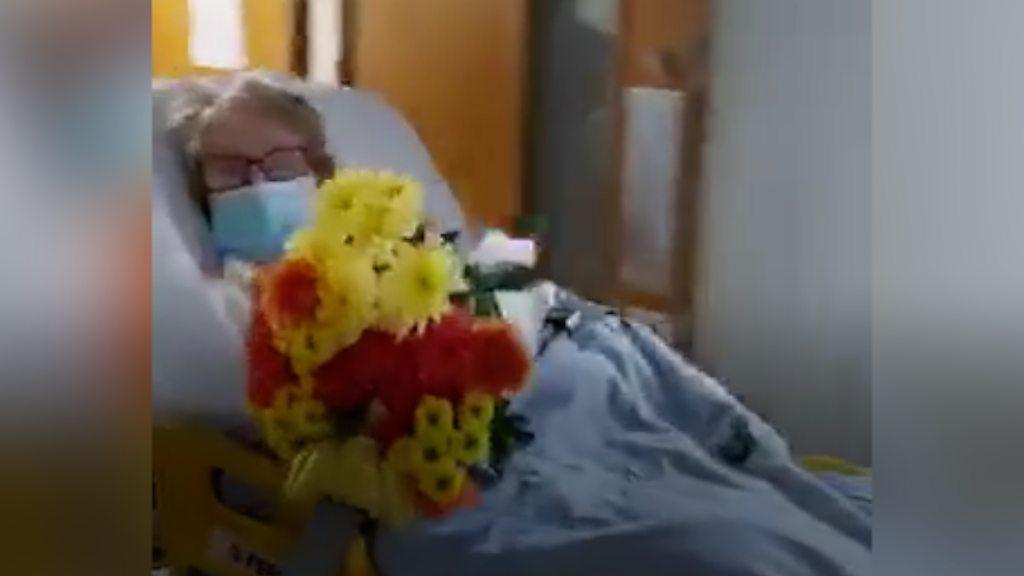
- Published5 June 2020
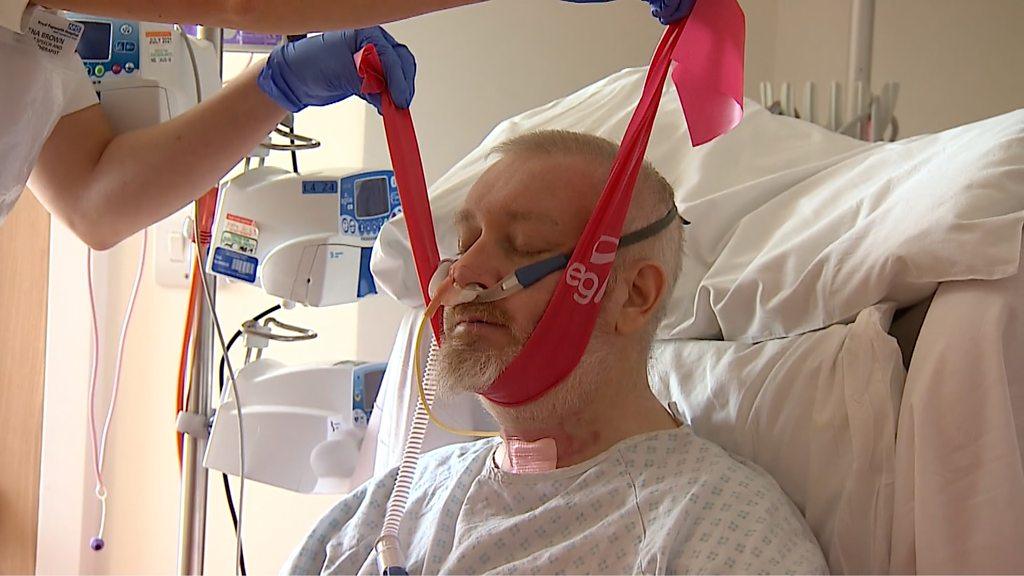
- Published4 May 2020
